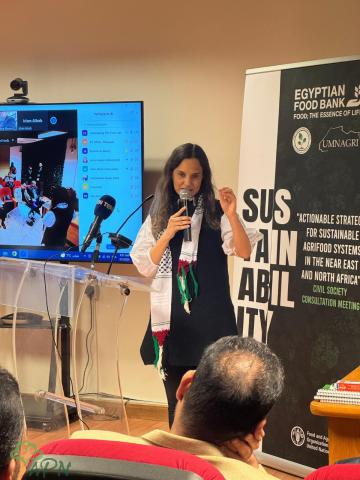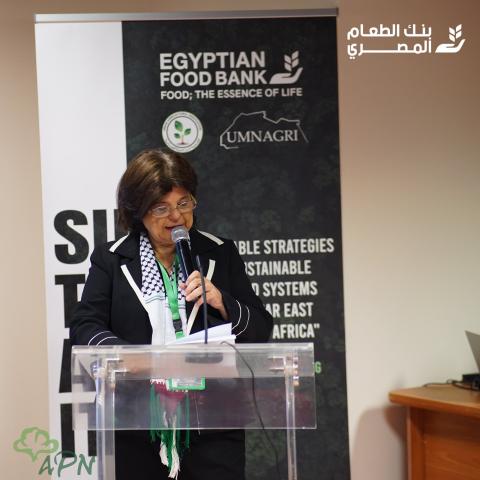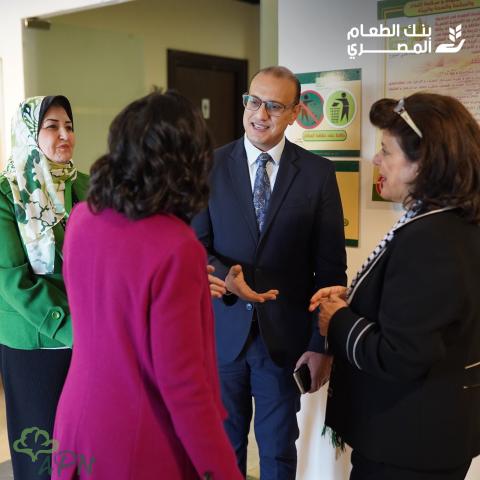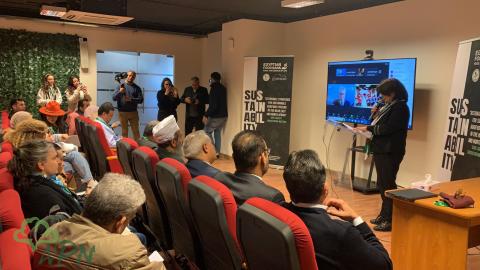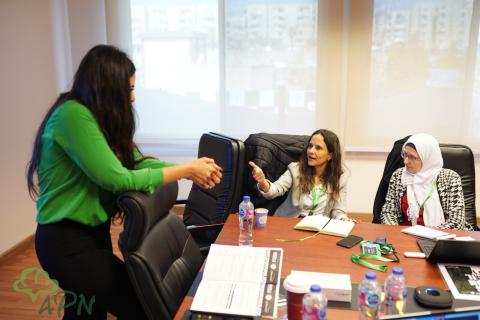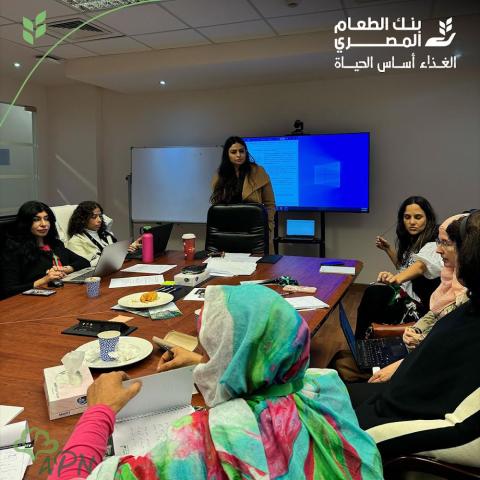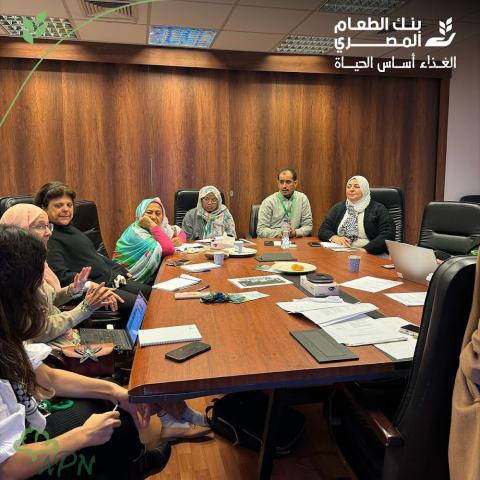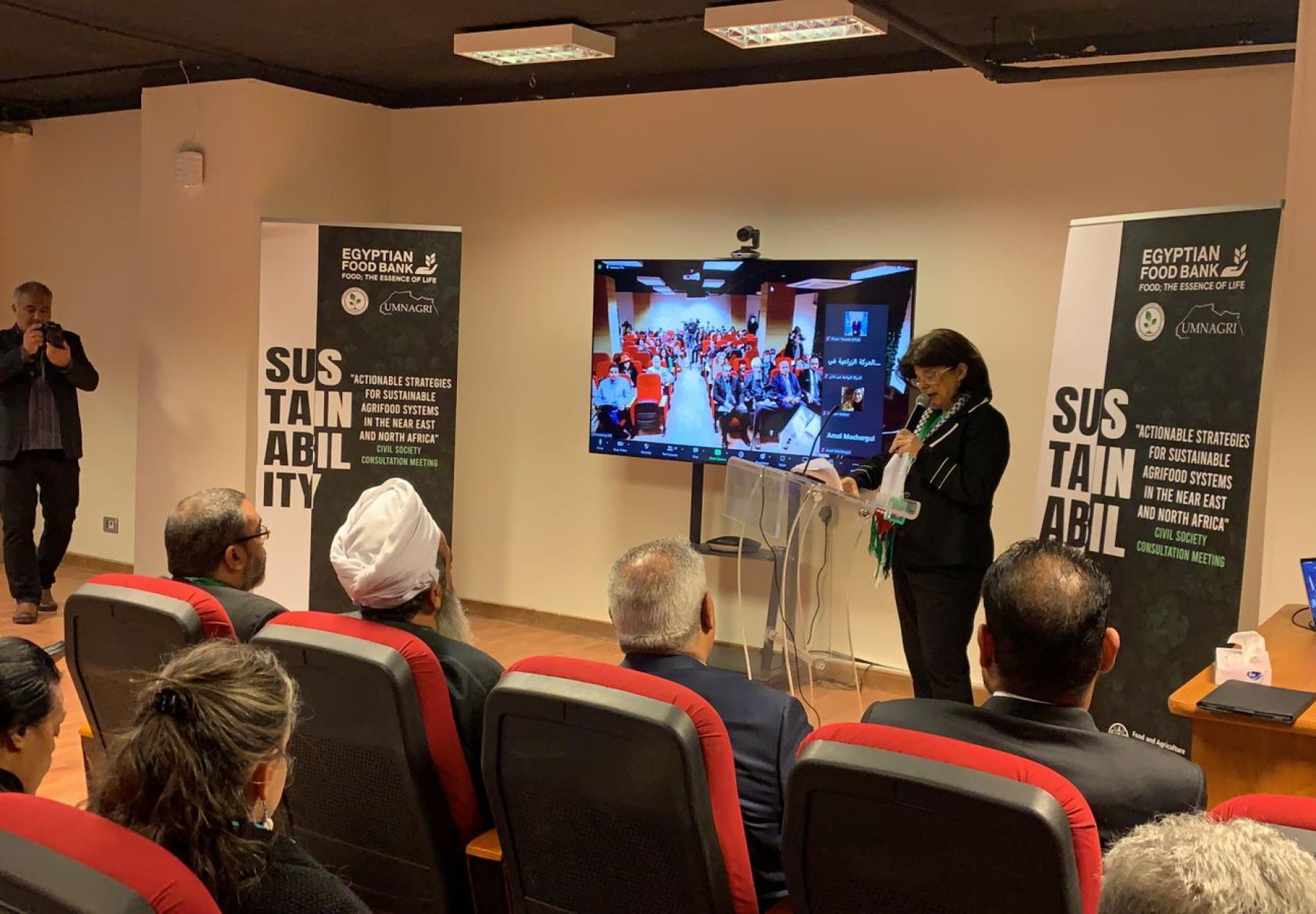
APN | Amman - Cairo
January, February, March 2024
In preparation for the 37th FAO Regional Ministerial Conference (NERC-37), held in Jordan in March, APN was invited to speak at the opening session of the CSO consultation held in Cairo on 31 January – 2 February 2024, as well as participate in the Senior Officials Meetings between 5 – 8 February 2024.
The sessions fostered deep and productive discussions and dialogues among various actors convened by FAO, aiming to formulate actionable recommendations in collaboration with officials from the region's countries and representatives of civil society. At the opening session of the CSO consultation in Cairo, attended by representatives from 15 Arab countries, Razan Zuayter, APN Chairperson and founder of the Arab Network for Food Sovereignty, delivered a speech addressing several pressing issues. She emphasized the urgent need for an immediate ceasefire of the genocide in Gaza and the condemnation of using food as a weapon. Additionally, Zuayter highlighted the importance of food sovereignty and delineated the distinctions between food sovereignty and food security. She also outlined a series of strategic prerequisites to achieve food sovereignty, including Arab agricultural and economic integration, cessation of inter-regional conflicts, and attainment of civil peace within the Arab region, underscoring their direct impact on reducing hunger rates. Furthermore, Zuayter advocated for the support of local food systems and small-scale producers.
During the first session of the second day of the meetings, APN Chairperson, Mariam Al Jaajaa, delivered a speech emphasizing the imperative of employing diplomatic, economic, and political pressure to facilitate border openings and halt the ongoing genocide. She also underscored the importance of pressuring countries supporting the Zionist entity to abandon double standards and fulfill their obligations regarding protecting food security amidst wars and occupation.
During the Seniors Official Meeting, Zuayter emphasized the importance of naming things as they are, particularly in light of the loose usage of the term "crisis." She asserted that the current situation in Palestine, for instance, cannot be simply categorized as a conflict or crisis; rather, it constitutes a genocide, a recognition echoed by numerous countries, the International Court of Justice, and peoples of the world. Furthermore, she argued that the use of food as a weapon inherently politicizes the issue, warranting thorough scientific discussions within FAO and other international organizations. Zuayter also stressed the necessity of involving civil society organizations in these discussions.
During the session addressing the situation in Gaza, Zuayter reiterated APN’s recommendation to Arab countries to collectively utilize all available diplomatic, economic, political, and logistical channels to challenge the double standards prevailing in the international arena. The primary objectives included the immediate cessation of the genocide in Gaza, lifting the siege, bolstering support for the FAO Regional Office to prioritize regional needs, enhancing support for civil society, and fostering its capacity to effectively engage at all levels. Additionally, she advocated for the activation of specific international norms and laws, such as Protocol 1 of the Geneva Conventions, which prohibit “the starvation of civilians as a method of combat” (article 14), and prohibits countries “to attack, destroy, remove or render useless objects indispensable to the survival of the civilian population, such as foodstuffs, agricultural areas for the production of foodstuffs, crops, livestock, drinking water installations and supplies and irrigation works” (article 54). Furthermore, Zuayter highlighted the significance of reciprocity agreements, emphasizing that it is impermissible to authorize the delivery of food to Israel while obstructing its delivery to the Gaza Strip.
Zuayter also provided recommendations to FAO within its expertise, emphasizing that the primary focus should be the immediate cessation of the genocide rather than solely strengthening resilience. She urged for resilience to be viewed as a mechanism or means rather than an objective in of itself. Additionally, she called for the establishment of a continuous operations room, if not already in place, to monitor developments on the ground in Gaza, Sudan, and any Arab country facing systematic starvation. This was intended to document the crimes of starvation committed by the occupation, not only in Gaza but also in the West Bank, where the Zionist occupation caused significant losses in the Palestinian agricultural sector, exceeding $22 million within 53 days (from October 7 to December 1, 2023) due to aggression during the harvest season. Zuayter urged FAO to transparently share information for use in international campaigns advocating for Gaza. Furthermore, she proposed leveraging UN frameworks and texts led by FAO and ratified by all countries worldwide, such as the FFA and the declaration on the Right to Food, to develop an urgent action program to combat starvation. She stressed the importance of developing a clear proactive strategy for compensation and rehabilitation in the Gaza Strip. Finally, she emphasized that without a unified political and sovereign collective will from countries and reliable UN platforms such as FAO, efforts would remain merely theoretical, and meetings would yield no tangible change.
The majority of the recommendations put forth by APN, including the retention of the term "crisis" to depict the situation in Gaza in the final declaration, were acknowledged and adopted. It was noted that economic measures were excluded from the methods of pressure to address the double standards of the West.
Finally, Zuayter was invited to attend the 37th Ministerial Meeting held in Amman between 4 – 5 March 2024.
